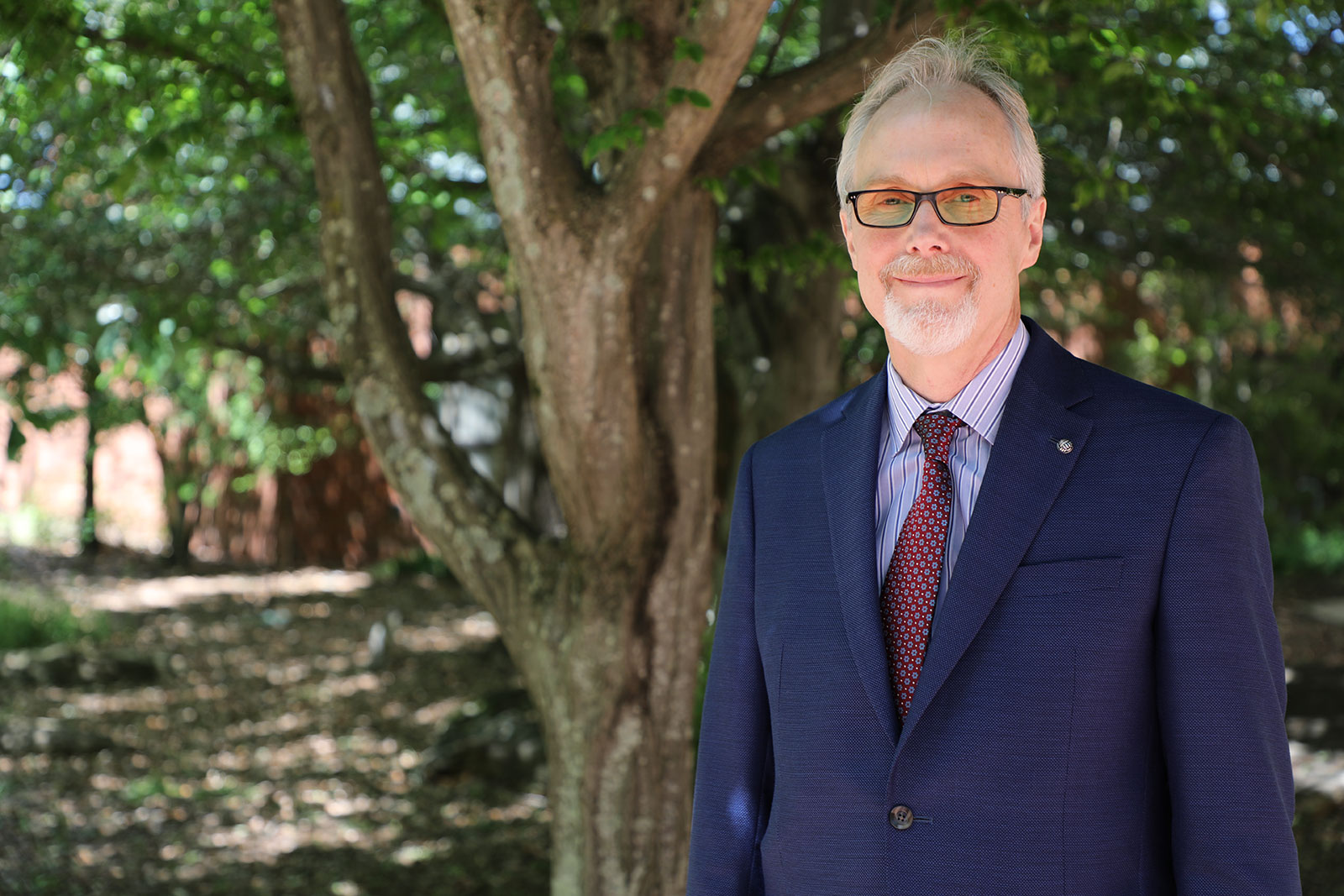Mark D. Hunter became dean of the Odum School on July 1, following Sonia Altizer’s two-year term as interim dean. It was a homecoming of sorts for Hunter, who served as a UGA faculty member in ecology from 1995 to 2006. He joined the University of Michigan faculty in 2006, with dual appointments as a professor in the department of ecology and evolutionary biology and a professor in the School for Environment and Sustainability. He served as the founding director of the university’s award-winning Frontiers Master’s Program, designed to promote participation by underrepresented groups in the graduate study of ecology and evolutionary biology, and he served as interim chair of the department of ecology and evolutionary biology.
Why were you interested in returning to the Odum School, and how has it changed?
When it comes to faculty, the school’s great. There’s lots of really exciting work going on. But after some time away, the school has grown, undergraduate programs have grown, there are new faculty faces, new research directions—it’s just a really, really exciting place. The big difference I notice is that there’s an energy that comes from being your own school. It really has moved the Odum School into a place that it couldn’t get to as a standalone institute. It’s just a very, very attractive place to work.
What opportunities do you see ahead?
Obviously, what we do particularly well is research, education, and outreach—we’re excellent in all three. I’d like to see us use our expertise in research and education to look outward, to see how we can interact both with the businesses that are the economic engine of the state, but also the communities that rely on the environment. They rely on business, and they also rely on healthy ecosystems. I think we are an important resource for the communities of Georgia and the businesses of Georgia to make all of those things work well together. There has been a new sort of paradigm in how ecologists interact with businesses and communities as a much more partner-based relationship. That’s really what I’m hoping the Odum School will continue to do and grow into.
During your visit to campus, you mentioned business and community partnerships established during your time at the University of Michigan. Are you hoping to do the same at the Odum School?
I spent quite a lot of time trying to work out where our graduates would go. If you graduate with an undergraduate degree in ecology or a graduate degree in ecology, where is it that you want to go, and where can our ecologists contribute most? And traditionally, like everywhere else, a lot of our graduates went into work in education and research, perhaps with federal agencies, nonprofits—those are all wonderful. And I know we’ll continue to do that well, but there are growing opportunities in community-based organizations, in business. I’d really like to see us populate all of those potential niches with ecologists from UGA. I think that’d be a great thing.
It’s something that students are really interested in. Even freshmen are asking, “What can I do with this degree?”
Back in the day, if you asked ecologists—even at the undergraduate level—what they wanted to do, 99% would say they wanted to do research on organisms in the natural world. That’s wonderful. And certainly that was the path that many of us took. But our problems are urgent. And our opportunities are vast. I’d really like to see us take every opportunity to put our students into positions to be changemakers in communities and business both within the state and beyond.
What makes the Odum School of Ecology special?
It’s of a size that people really can get to know each other. So many schools and colleges are a bit too large for people to know almost everybody else, but we’re a bit smaller. And yet large enough that we’ve got lots of people doing lots of different things. That’s a nice sort of intermediate size to be. I think it generates an opportunity for a sense of community, a sense of partnership. And when I talk to graduate students, alumni, undergraduates, faculty, they all talk about the culture of community that exists here, and how important that is, and how it’s important to maintain it and strengthen it. Certainly that rings true for me.
Anything else you want to add about your vision for moving forward?
I just think that the sky’s the limit for the Odum School. We have incredible talent at the undergraduate level, the graduate level, faculty and staff, and you can feel the commitment as you walk around the building—the sense of excitement that that we can contribute to making the world a better place. That’s the fire that I want to keep burning at the Odum School.

